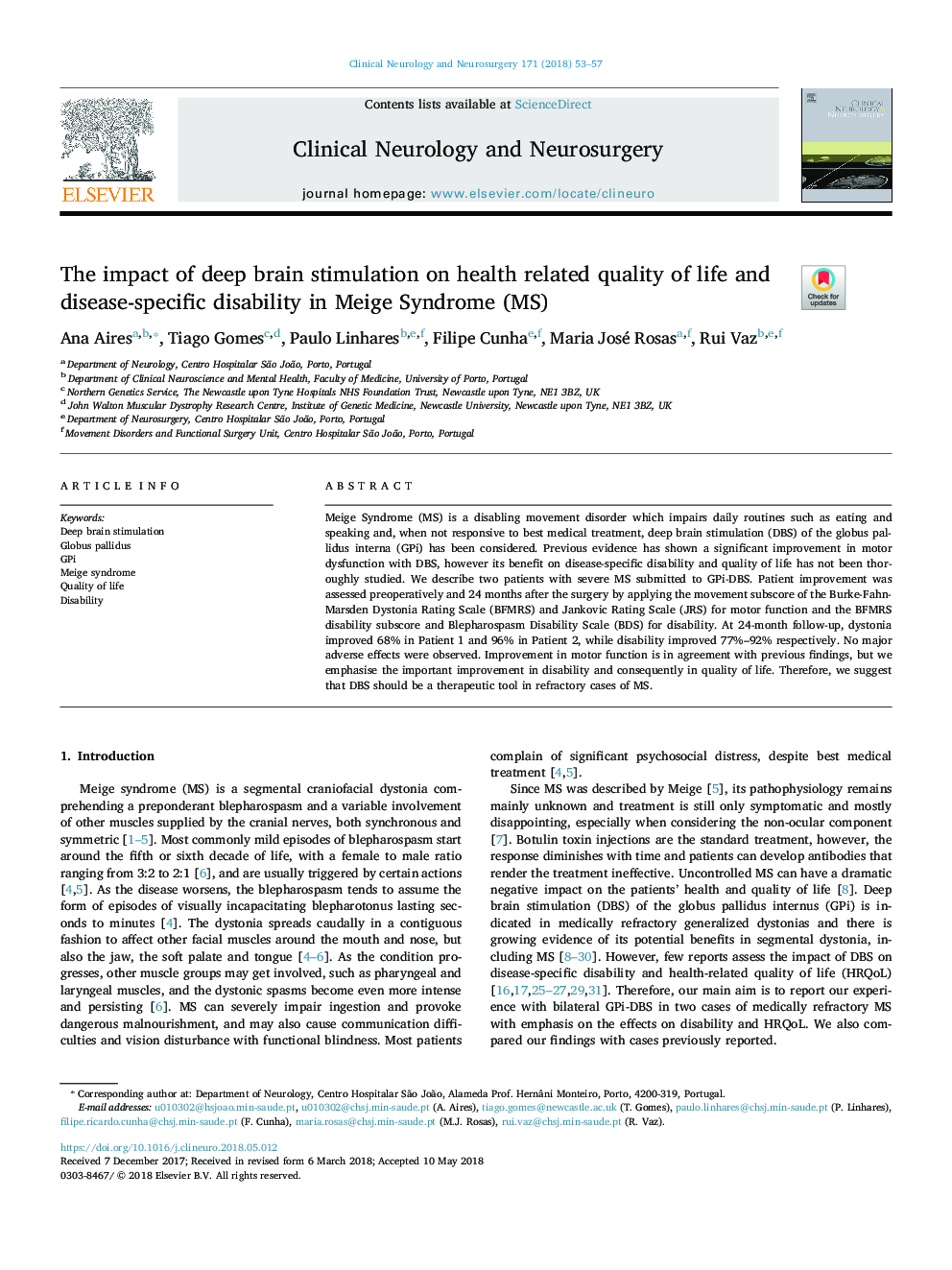| Article ID | Journal | Published Year | Pages | File Type |
|---|---|---|---|---|
| 8681694 | Clinical Neurology and Neurosurgery | 2018 | 5 Pages |
Abstract
Meige Syndrome (MS) is a disabling movement disorder which impairs daily routines such as eating and speaking and, when not responsive to best medical treatment, deep brain stimulation (DBS) of the globus pallidus interna (GPi) has been considered. Previous evidence has shown a significant improvement in motor dysfunction with DBS, however its benefit on disease-specific disability and quality of life has not been thoroughly studied. We describe two patients with severe MS submitted to GPi-DBS. Patient improvement was assessed preoperatively and 24 months after the surgery by applying the movement subscore of the Burke-Fahn-Marsden Dystonia Rating Scale (BFMRS) and Jankovic Rating Scale (JRS) for motor function and the BFMRS disability subscore and Blepharospasm Disability Scale (BDS) for disability. At 24-month follow-up, dystonia improved 68% in Patient 1 and 96% in Patient 2, while disability improved 77%-92% respectively. No major adverse effects were observed. Improvement in motor function is in agreement with previous findings, but we emphasise the important improvement in disability and consequently in quality of life. Therefore, we suggest that DBS should be a therapeutic tool in refractory cases of MS.
Related Topics
Life Sciences
Neuroscience
Neurology
Authors
Ana Aires, Tiago Gomes, Paulo Linhares, Filipe Cunha, Maria José Rosas, Rui Vaz,
